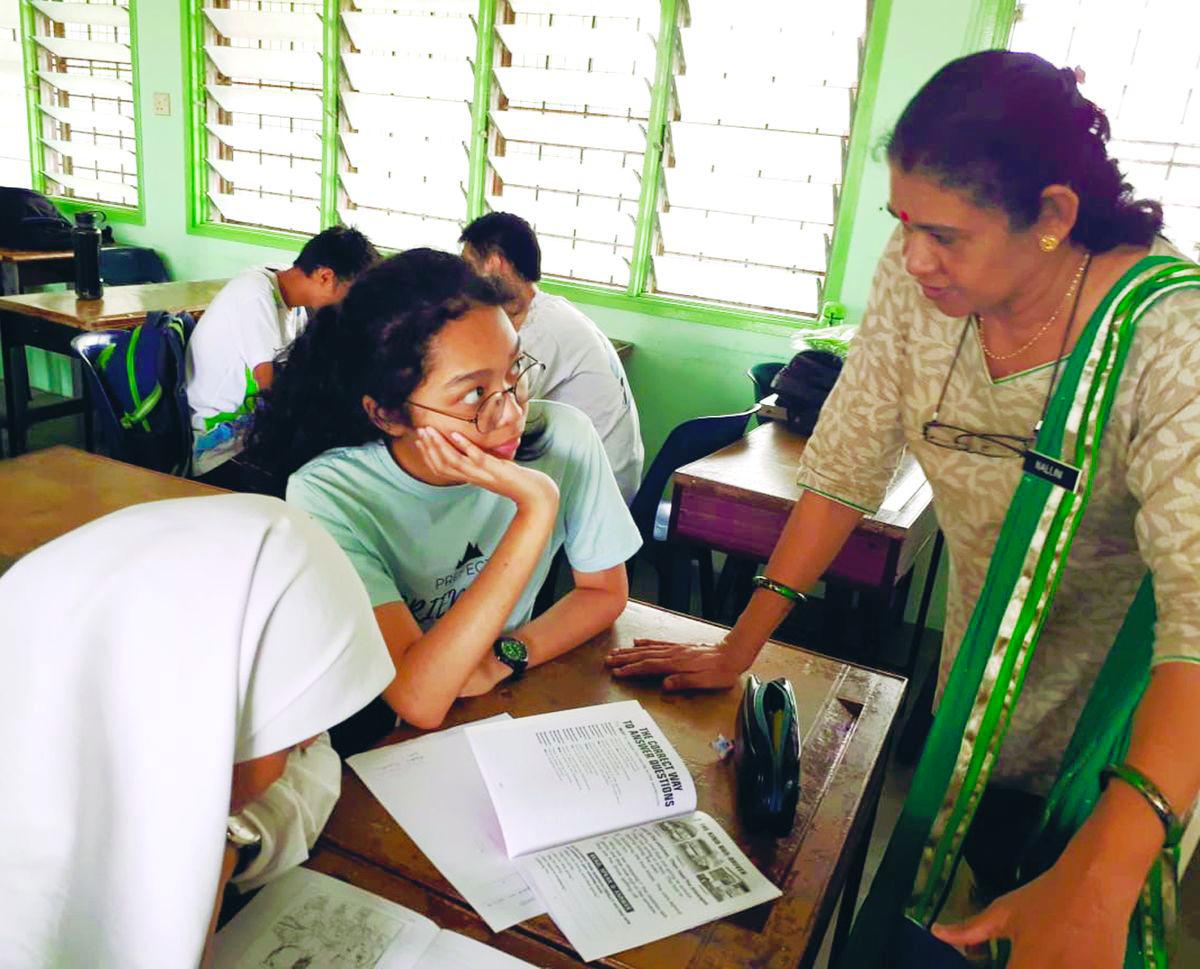FOR me, growing up with examinations was a part of going to school. Being educated in a convent school with regular assessment tests meant we all knew our weaknesses and strengths.
But the standard six and form three government examinations set a national benchmark because the whole school knew whether we met the national standards of teaching and learning. If we did well, there were congratulations all around.
If not, we had to attend extra classes to improve.
For many, the sudden abolishment of UPSR in 2021 and the PT3 in 2022 by the Ministry of Education (MOE) came as a shock because there was no indication of the move from MOE prior to the action.
There was also no transition period for the abolishment, leaving teachers in government schools having to prepare their students for school based assessments, with bare minimum guidelines.
Building skills through exams
Mangalagowri Ramanathan, a HR practitioner for 20 years, with 2 school-going children expressed her deep unhappiness with the abolishment of both exams at short notice.
In her letter to the Sun she said:
“Research has shown there is a degree of stress among students, when faced with exams. There are reports of burnout and some students show depression and possibly loss of appetite in this high pressure environment but does that mean exams should be abolished?” she said.
“Exams when approached with the right structure and support are not just about memorisation or grades. They cultivate resilience, time management, consistency, focus and the ability to deliver and cope under pressure. These are life-skills that go beyond the classroom.”
Mangalagowri added that she had observed first-hand how these traits or their absence play out in the workplace.
“By abolishing UPSR and PT3, policymakers aimed to reduce academic stress but now teachers worry that students lack foundational skills when they sit for SPM and parents are left without clear benchmarks of progress,” she added.
Hamidi Mookkaiyah Abdullah, current secretary for the Malaysian Society for Education and ex-secretary of for the national union of teachers’ profession (NUTP) Selangor, with more than 35 years of teaching experience said:
“Exams have an important function, which sometimes may be overlooked.
“They mark key transitions. When students perform well, they can influence subject options and stream placement.
“Secondly, exams contribute to foundation building, where students can access core literacy and numeracy skills, essential for future learning. Also, a structured target can motivate disciplined study habits and a sense of achievement,” he said.
“For parents and teachers, exams provide a means of benchmarking to identify strengths and areas needing support.
“For the education system, national exams ensure basic competencies across the student population; they can influence policy decisions, where data driven insights influence curriculum design, teacher training and resource allocation.
Exams improve equity and access, where those underperforming schools can be singled out for improvement and also improve support for underserved communities,” said Hamidi.

The lack of analysis of UPSR and PT3 exams
Lecturer Aznijar Ahmad Yazid, working in the faculty of engineering at Universiti Malaya and vice-president of Persatuan Kakitangan Akademik Universiti Malaya (PKAUM) session 2024/26, felt MOE may have been too hasty in their decision-making:
“There was no real analysis made of the effectiveness or the weaknesses of both exams when both were abolished.
“While I do agree with the spirit of the change, the implementation which was so sudden, without any pilot studies made anywhere locally made me feel unsure of the consequences.
“I would have liked for the new system of school based assessments to have been given a pilot run in selected schools or states, and the results compared with the existing system first.
“To me, the change was rushed and was not properly considered, not deliberated adequately, without the involvement of all stakeholders and was ultimately a bad decision,” added Aznijar.
Teachers under stress
Jerome Fernandez, who taught both in secondary and primary schools for 31 years and retired as headmaster,feels the abolishment does not augur well for students, including teachers.
“These exams gave students direction and discipline and they allowed parents and teachers to clearly measure progress.
“Without exams, students tend to lose focus and teachers are under stress to produce assessments, which can be inconsistent. Teachers become overworked, grading could be also biased and lead to unfairness in this system of school based assessments.
“In the long run, this decision may weaken our education system and leave students less prepared for bigger challenges such as SPM,” he said.
Managing exams not abolishment
“The stress of exams is undeniable, but so too are their benefits. The key lies in managing the process, not abolishing it. Parents must avoid projecting anxieties onto their children. Policyholders must design systems that safeguard mental health, while maintaining standards,” said Mangalagowri, who hopes the MOE, will reconsider their decision based on feedback.









